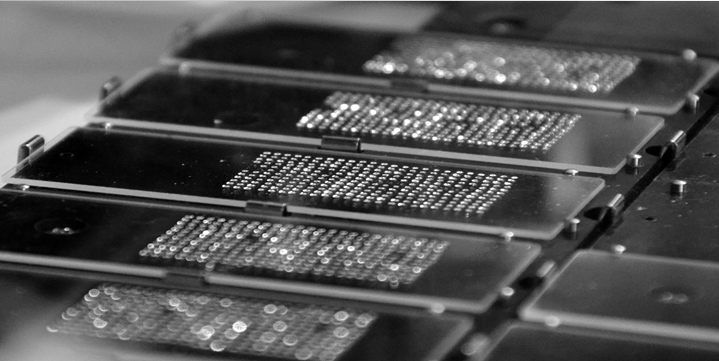Research and Innovation

The Global Challenge
Cancer Detection
The clinical diagnostics space is a $200B industry with these challenges:
- Long development cycles for tests
- Challenge to accurately diagnose complex diseases early
- Need for a battery of tests
- Expensive infrastructure
Many current commercially available tests perform poorly, especially in early-stage cancers, and are invasive.
From a health economics viewpoint, these tests carry a heavy financial burden on the limited healthcare dollars available for treatment.
This situation exists for many cancer diagnostics including, for example, Prostate, Breast, Ovarian, Pancreatic, Colorectal and Lung cancers.
What if it were possible to detect and distinguish different cancers in early-stage disease when response to therapy is greatest,
using a non-invasive urine specimen?
The Solution
True Liquid Biopsy Platform
PanGIA is a white space, urine based, non-invasive, machine learning driven, biomolecular profile true liquid biopsy platform.
Our true liquid biopsy platform allows rapid development of non-invasive testing for detecting and managing a variety of diseases and disorders, including cancers. PanGIA combines a machine learning algorithm with proprietary unbiased binding of small molecules, proteins, and cells, followed by a signal readout and final analysis, creating a biomolecular profile of the patient. Our sophisticated algorithms and bioinformatics tools enable the interpretation and extraction of meaningful insights from complex data.
One of the key advantages of our true liquid biopsy technology is its non-invasive nature. Unlike common traditional and liquid biopsies that require invasive procedures, our tests do not require a blood draw or procedure. This minimizes patient discomfort, reduces procedural risks, and allows for serial monitoring of the disease progression and treatment response. Our technology empowers both patients and healthcare professionals with actionable information for informed decision-making.
- Reduce Unnecessary Biopsies
- Reduce costs
- Improve diagnostic yield
- Fewer complications and side effects


